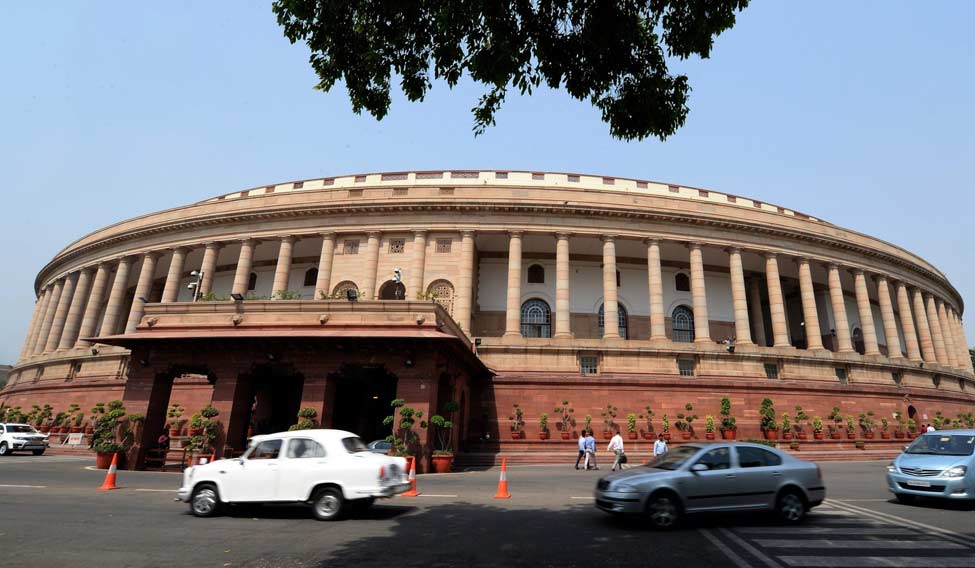Results of the five states assembly elections seemed to have salutary effect on the opposition in both the houses of parliament, as government managed to get 18 bills passed including the crucial Goods and Services Tax bill. There was not much disturbance as Lok Sabha clocked over 113 percent productivity, Rajya Sabha over 92 percent.
For the Modi government, this budget session marked many firsts. “The budget was advanced which helped in completion of all financial business of government before the start of next financial year by March 31. There was one integrated budget, which included the railways. The house passed all the enabling acts of the GST,” Ananth Kumar, parliamentary affairs minister said.
If government's brute majority in Lok Sabha helped in getting key bills passed, the united opposition forced the ruling dispensation to refer three bills—Constitution (Amendment) Bill, 2017 for giving constitutional status to the backward classes commission, Motor Vehicles (Amendment) Bill, 2017 and Factories (Amendment) Bill, 2016—to the select committee for further scrutiny.
“The delay in passage of these socially important bills will prevent the common people to derive benefits for some more time," Mukhtar Abbas Naqvi, minister of state for parliamentary affairs said.
During the entire budget session 2017, there were total 29 sittings each of Lok Sabha and Rajya Sabha. The productivity of Lok Sabha was 113.27 % and that of Rajya Sabha was 92.43%.
"Approximately eight hours were lost in Lok Sabha and 18 hours in Rajya Sabha due to interruptions, which was made up by sitting late for approximately 19 hours and 7 hours respectively," Kumar added.
The session was productive for the government comparing to the last winter session during which Lok Sabha had lost 92 hours to disruption. As the session was on during the demonetisation, the Opposition, particularly the Congress, had disrupted the proceedings several times. However, as the results of the assembly elections revealed that people had accepted the demonetisation, the opposition did not have sufficient issues this time.
Even in case of the GST Bill, after the intervention of former prime minister Manmohan Singh, the Congress came around to support the legislation. This helped the government get a safe passage in Rajya Sabha, where it does not have the numbers.
Now, the government can roll out the one tax regime in the country from July 1. Getting the GST Bill passed would be Modi government's major policy reform victory as it had assiduously engaged with the opposition inside the house. It saw Finance Minister Arun Jaitley, Urban Development Minister Venkaiah Naidu, and later Ananth Kumar hold talks with the various parties to get them to support the bill.
During this session, a total of 24 bills were introduced in Lok Sabha, of which 23 were passed. Rajya Sabha passed 14 bills. In all, the number of bills passed by both houses of Parliament during the session was 18. During the winter session, government had introduced 10 bills but could get only four passed.
Some of the key legislations included: Payment of Wages Bill, Maternity Benefit Bill, Mental Health Care Bill, 2017, and Employee’s Compensation Bill. The Enemy Property (Amendment and Validation) Bill, 2017 was also passed by both Houses of Parliament.
During the budget session, the Opposition including the Congress seemed out of steam, apparently because of their poor show in Uttar Pradesh and Uttarakhand, and even losing chances in Goa and Manipur during the assembly elections.
Even as the government claimed victory in Parliament hailing it as the most productive session, the Opposition parties went to meet President Pranab Mukherjee on Wednesday—the day Budget session ended—alleging the government was undermining the democracy.
In the memorandum submitted before the President, the opposition said the government was trying to bypass and undermine the Constitutional position of Rajya Sabha by presenting most of the legislation as money bills.
The Opposition and the government would again come to face to face when presidential elections would come up in June/July. The government would need persuasive powers of its strategists to get their candidate into the top constitutional post.




